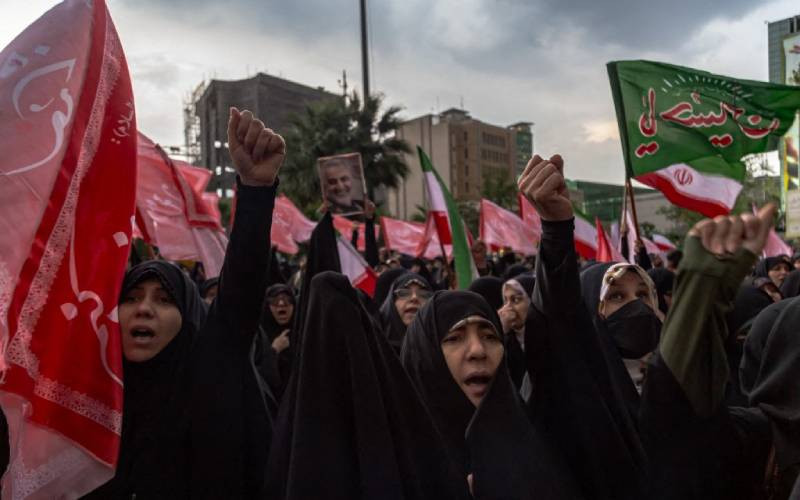×
The Standard e-Paper
Home To Bold Columnists

Pro-government protesters chant slogans during a demonstration staged in support of the Islamic Republic's mandatory hijab laws in Tehran on Monday, April 22, 2024. [AFP]
The United Nations said Friday that it was concerned by reports of new efforts to track and punish Iranian women, some as young as 15, who refuse to wear the headscarf required under the country's Islamic law.